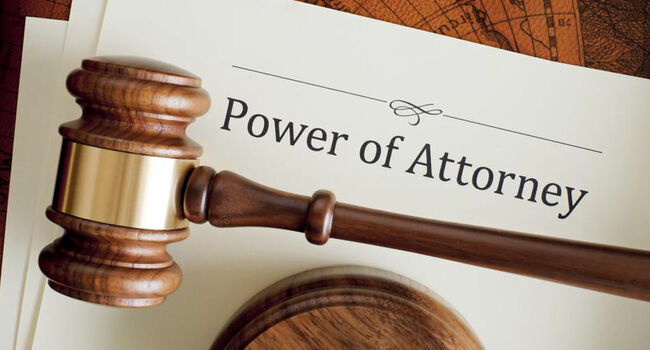Making decisions and taking
actions on your behalf
A Power of Attorney is a document signed by an adult, known as the “Donor”, appointing a Donor’s agent, known as the “Attorney” and giving that Agent or Attorney the authority to manage the Donor’s financial and legal affairs.
Under the traditional common law of agency, the authority given under a Power of Attorney, which is essentially an agency agreement, ends when the Donor no longer has mental capacity to enter into a contract. This means that as originally conceived, Powers of Attorney, were not able to be used for incapacity planning.
In British Columbia, the Power of Attorney Act, (R.S.B.C. 1996) c.370 was enacted to make powers of attorney useful to plan for a future potential mental incapacity. It now provides for what we call an Enduring Power of Attorney, containing language to the effect that the Power of Attorney is intended to survive the mental disability of the Donor, and the Power of Attorney will stay effective from the time it is granted, until the person dies or revokes the Power of Attorney.
Clients often inquire about the Power of Attorney with these frequently asked questions:
What prevents my agent under a Power of Attorney from stealing my assets?
Using a Power of Attorney to steal or fraudulently deal with a person’s assets is a crime under section 331 of the Canadian Criminal Code. Also, the Attorney under a Power of Attorney is under a high legal duty to act in the interest of the Donor of the Power of Attorney. This legal duty is called a “Fiduciary Duty”. It is a duty of loyalty and conscientiousness that arises out of a special relationship of trust and confidence which should exist between Donor and Agent. It is similar to the duty between lawyer and client. If you are concerned that an unscrupulous Agent may steal your assets, you may wish to speak to one of our lawyers regarding the safekeeping of your Power of Attorney and choosing a trustworthy individual for the job.
How does a Power of Attorney compare to having an inter-vivos or living trust?
The main distinction has to do with how the assets are owned, and therefore there are different tax implications from using a Power of Attorney versus using a trust. There is no law that says third parties, such as banks, must do business with the Attorney under your Power of Attorney, however, because your Trustee becomes the legal owner of your property, third parties must deal with your Trustee. Also, the authority of an Attorney under a Power of Attorney ends upon your death, but the authority of a Trustee can continue after your death.
Does a Power of Attorney have to be registered?
Currently there is no central registry in British Columbia for Powers of Attorney. If your Agent must handle a real estate transaction for you, the Power of Attorney will need to be registered at the time of the transaction in the appropriate Land Title Office.
When does a Power of Attorney end?
You can specify an ending date in your Power of Attorney. If you don’t, and it’s not an Enduring Power of Attorney, it ends when you become incapable. If it is enduring, it ends when you die. You may revoke your Power of Attorney at any time (if you are still competent). A Power of Attorney would also end on the appointment by a Court in British Columbia of a Committee of the Estate of the Donor.
Is a Power of Attorney a substitute for having a Will?
No. A Power of Attorney is only valid during your lifetime, and the authority ends immediately upon your death. When that happens, your agent will lose their decision-making power for managing your assets, the power passing to your personal representative or Executor. Do not rely upon a Power of Attorney as a Will substitute.

